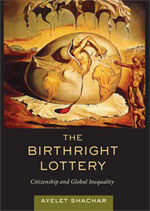There have been a considerable number of allegations of late that the Federal Government has been improperly interfering with independent Federal Agencies, Board and Commissions (or, for short, Federal ABCs). From a dispute about veiled women voting to a dispute about shutting down a nuclear facility, both the diversity and the importance of independent administrative ABCs has been on display. But just how independent are they? When we refer to a body as at “arm’s length” from the Government, does that imply it still may be within the Government’s grasp. Below I suggest these administrative bodies may not be as independent as we think they are, but that their vulnerability to government interference is precisely what is intensifying public scrutiny of government and enhancing public support for administrative justice.
In September, Prime Minister Harper said he “profoundly disagreed” with the decision of Elections Canada not to require veiled women to submit to visual identification before being able to vote in federal elections. Harper added:


